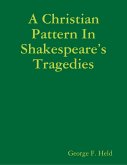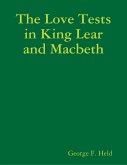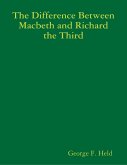Two essays on Shakespeare's Othello. The first argues that Cassio's and Othello's losses of reputation and honor form a tripartite climactic progression: a loss of reputation through little fault of one's own (Cassio's), a loss of honor through no fault of one's own (Othello's through another's infidelity), and a loss of honor through one's own fault (Othello's through his murder of Desdemona). The play's grand irony is that Othello's mistaken belief that he has lost his honor through another's fault leads him so to act that he loses his honor through his own fault. The second essay centers on Kermode's words: the marriage is "founded upon her just understanding of his virtue." I show that her "understanding of his virtue" is no different from that of the others. The marriage is also "founded upon" his understanding of her virtue, and this proves to be fragile. Iago is able to destroy the marriage by undoing Othello's fragile belief in Desdemona's virtue. Othello like Brabantio thinks the marriage unnatural.
Dieser Download kann aus rechtlichen Gründen nur mit Rechnungsadresse in A, B, BG, CY, CZ, D, DK, EW, E, FIN, F, GR, HR, H, IRL, I, LT, L, LR, M, NL, PL, P, R, S, SLO, SK ausgeliefert werden.









